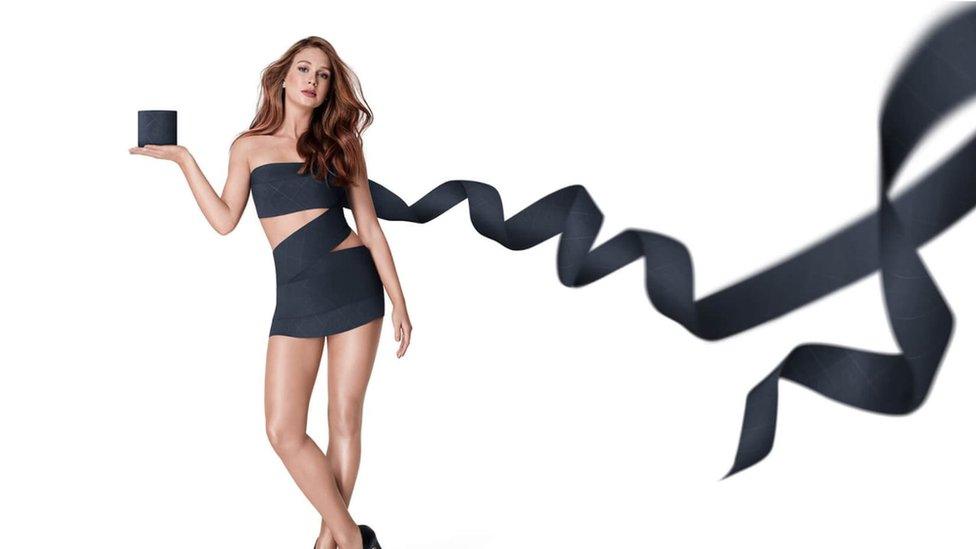#MeToo, #TakeAKnee and #Covfefe: Hashtags that dominated in 2017
- Published
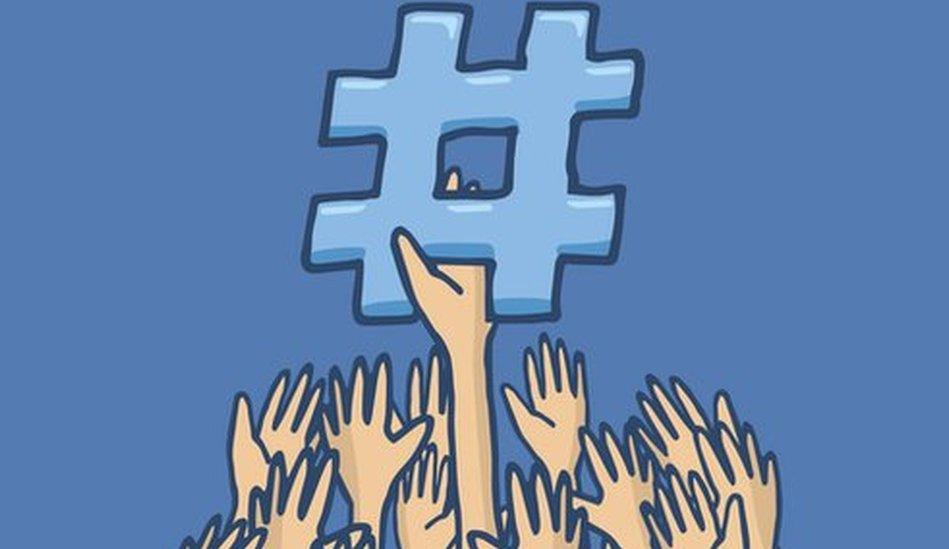
From terrorist attacks and high-profile deaths, to discussions about social issues, hashtags have given social media users the opportunity to participate in the big conversations taking place online.
In 2017, Twitter also increased its character length for tweets from 140 to 280, giving the platform's 300 million active users an opportunity to express their opinions in even more detail.
From #MeToo to #TakeAKnee vie #Covfefe here are some of the hashtags that have emerged in 2017.
#MeToo

Tara O'Brien's illustration has been shared across Instagram
One of the most prominent hashtags of 2017 inspired a global movement of men and women to share their stories of sexual abuse and harassment.
In 2007, the US activist Tarana Burke started the Me Too movement that would be rekindled in 2017 by the hashtag #MeToo.
It emerged following allegations of rape and sexual harassment by Hollywood film-maker Harvey Weinstein.
The term gained momentum after actress Alyssa Milano took to Twitter to ask victims of sexual assault to come forward in a show of solidarity.
Allow X content?
This article contains content provided by X. We ask for your permission before anything is loaded, as they may be using cookies and other technologies. You may want to read X’s cookie policy, external and privacy policy, external before accepting. To view this content choose ‘accept and continue’.
Between October and December 2017, the hashtag was used on Twitter and Facebook more than six million times.
Around the world other countries started to use different hashtags to join the debate. In France #balancetonporc or "rat on your dirty old man" was used more than 500,000 times during the same period, while in India #abusefreeindia was used to discuss sexual abuse.
#TakeAKnee
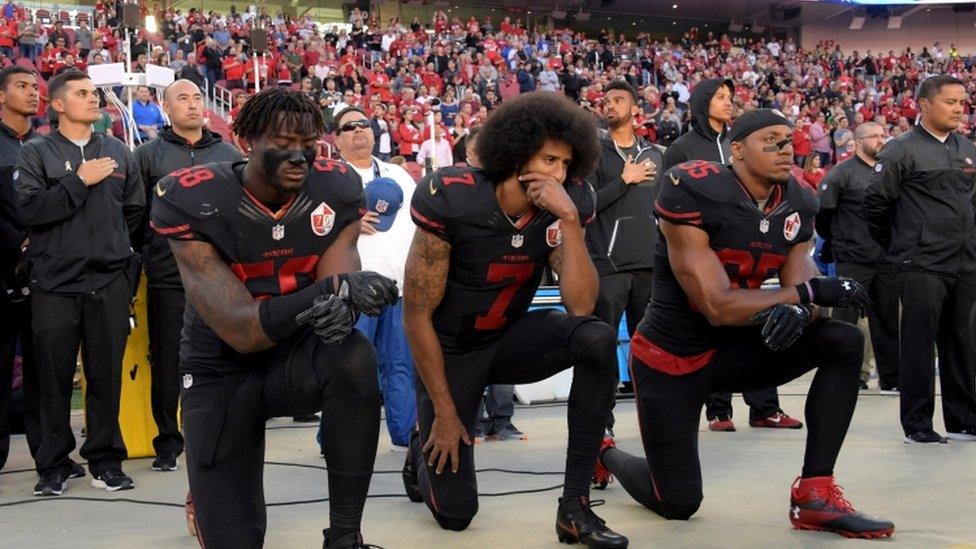
A number of players have joined Colin Kaepernick (centre) since he started his protest
In September 2017 the hashtag #TakeAKnee generated 1.2 million tweets in the space of only three days.
The hashtag was used to describe the action taken by NFL players who, prior to the start of American Football matches, kneeled during the national anthem.
The movement was started by NFL player Colin Kaepernick in August 2016 in protest over racial injustice.
At the time, Kaepernick said "Police brutality is a huge thing that needs to be addressed. There are a lot of issues that need to be talked about and need to be brought to life."
However, many fans believed the sports star was disrespecting the American constitution.
At a rally in Alabama, President Trump condemned the actions of the increasing number of NFL players joining the movement.
By the end of September 2017 the hashtag #TakeAKnee was established as a rallying cry by people supporting the protest.
#Covfefe
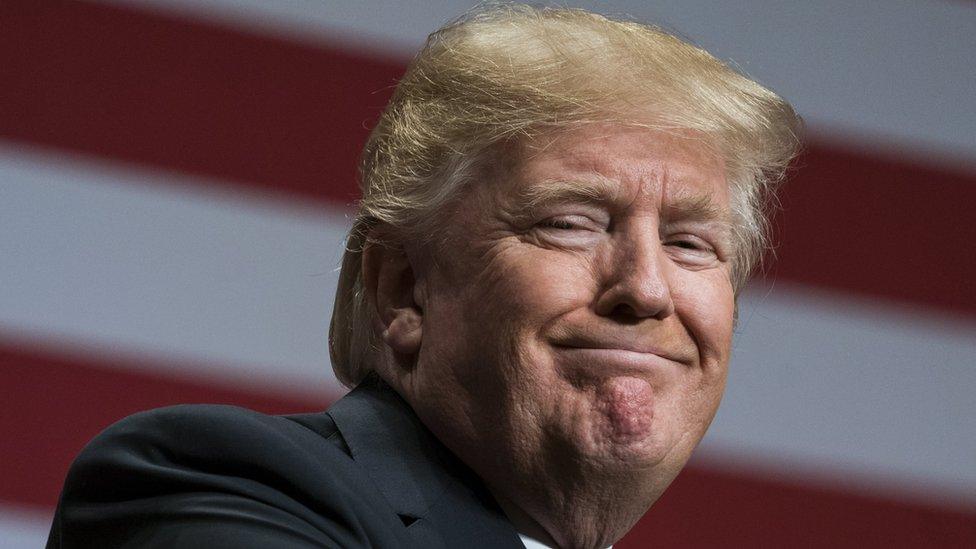
At the end of May a bizarre new word was trending on social media as users began debating the meaning of the word covfefe.
The word first appeared in a tweet by US President Donald Trump: "Despite the constant negative press covfefe," he tweeted just after midnight, Washington time on 31 May.
He then appeared to have gone to bed, without finishing his thought or correcting the word which many believe was a typo for the word coverage.
Two hours later Mr Trump's covfefe tweet had been retweeted 70,000 times as social media users joked and speculated on what the word could mean.
Allow X content?
This article contains content provided by X. We ask for your permission before anything is loaded, as they may be using cookies and other technologies. You may want to read X’s cookie policy, external and privacy policy, external before accepting. To view this content choose ‘accept and continue’.
Six hours later the tweet had been deleted and replaced by another one in which President Trump appeared to fuel the mystery surrounding the word's meaning.
Allow X content?
This article contains content provided by X. We ask for your permission before anything is loaded, as they may be using cookies and other technologies. You may want to read X’s cookie policy, external and privacy policy, external before accepting. To view this content choose ‘accept and continue’.
When former White House press secretary Sean Spicer was asked by journalists what the tweet meant his reply provoked further incredulity, as he said: "The president and a small group of people know exactly what he meant."
Within 24 hours #covfefe had been used 1.4 million times.
#Third_debate
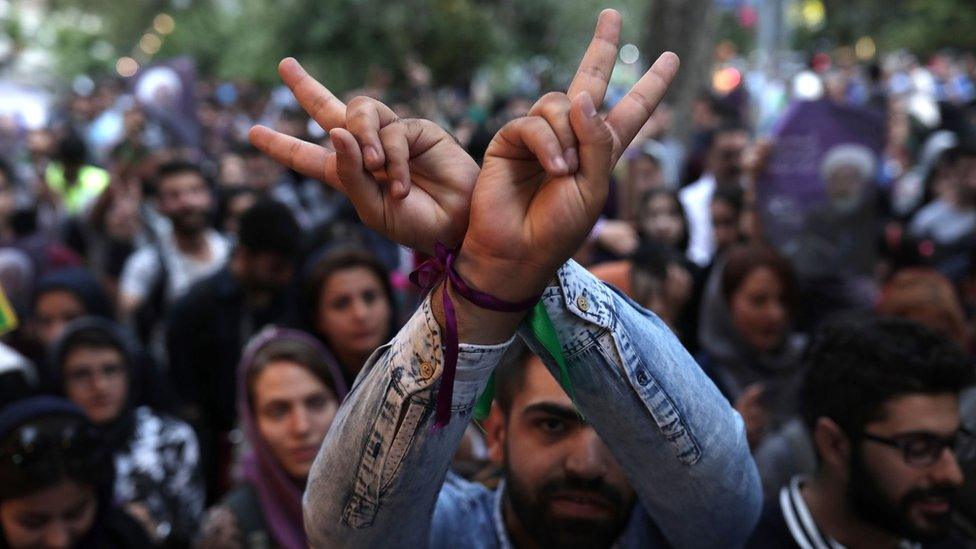
Supporters of Iranian President Hassan Rouhani celebrated in the streets following a general election in May
In May there was a presidential election in Iran. Three televised presidential debates took place between the six candidates, including moderate President Hassan Rouhani, who was seeking a second term in office.
The hashtag #Third_debate began trending on the day of the final debate on 12 May despite Twitter being banned in the country.
By the end of the day, the hashtag had been used nearly 150,000 times by Iranian users.
Popular posts used the hashtag to question the salaries of employees of Tehran's mayor and conservative candidate, Mohammad Baqer Qalibaf.
The account of President Rouhani's official campaign also posted a document purporting to show Tehran Municipality granting luxury homes to its senior staff at a discounted price., external
This largely came as a response to Mr Qalibaf's attack on Mr Rouhani's administration over revelations that several government executives had been paid "astronomical salaries".
On 19 May, Mr Rouhani was re-elected to a second term with 57% of the vote.
#YemenInquiryNow
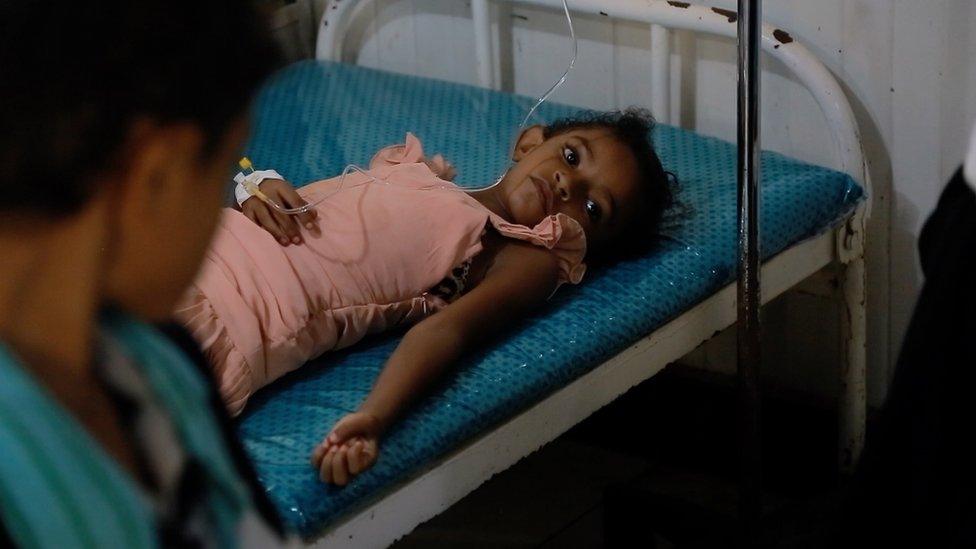
Food shortages have made many children more vulnerable to cholera
In September, Yemen's Al-Masirah TV urged its audience to post on Twitter using the hashtag #YemenInquiryNow to raise awareness of the humanitarian crisis affecting people in the war-torn country.
A blockade has been imposed on Yemen since 2015 by a Saudi-led multinational coalition. It has reduced the amount of food, aid, medicines and fuel allowed into the country and left millions of people on the brink of sickness and starvation.
The hashtag #YemenInquiryNow saw a massive uptake in use on 25 September and was used more than 120,000 times in 24 hours by Twitter users. Many stressed the number of human rights abuses in the country and called for a credible international investigation.
"A delay in forming an international commission of inquiry paves the way for new crimes against civilians in Yemen. #YemenInquiryNow" posted one Twitter user. , external
People used the hashtag to criticise Saudi Arabia and the UN, while others posted pictures of injured and malnourished children.
#ILoveYouChina
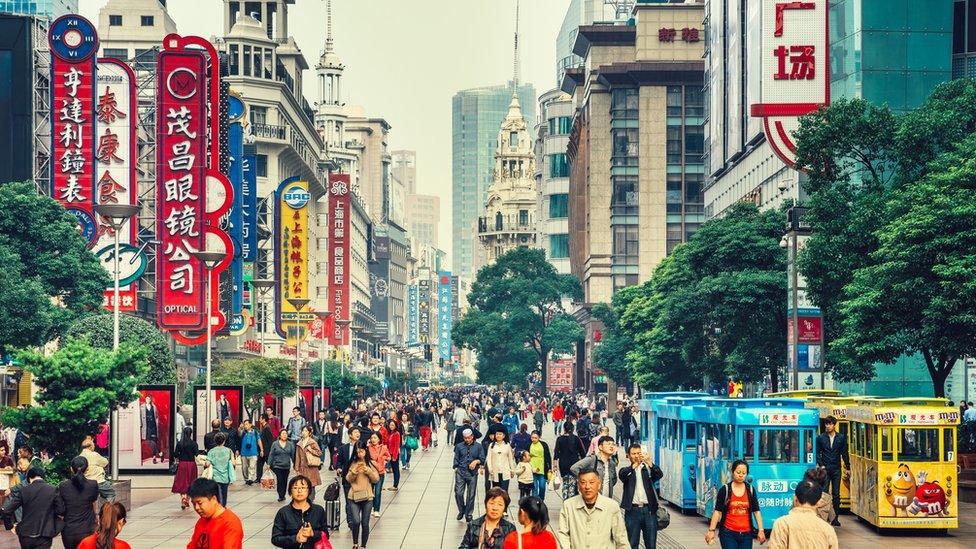
In October, during the lead-up to the People's Congress, China's most important political event, the government rolled out social media propaganda and enlisted the country's top musical acts to sing an old patriotic song.
I Love You China was the theme tune to the 1979 film Hearts for the Motherland, the story of a woman's struggle to overcome the prejudices she faced at being the daughter of overseas-born Chinese parents.
The original film suggested non-mainland Chinese should ignore people who say they have no right to express their love for the motherland.
It was used by people to show they backed the Communist Party leader in the run-up to the election.
When the video was posted for the first time on 1 October, it generated more than 322,000 shares and 35,000 comments on China's social media site Sina Weibo.
Over the following two weeks, the hashtag #ILoveYouChina was used more than two million times.
The campaign was effective in cementing President Xi Jinping's position in power for another term.
#308Removed
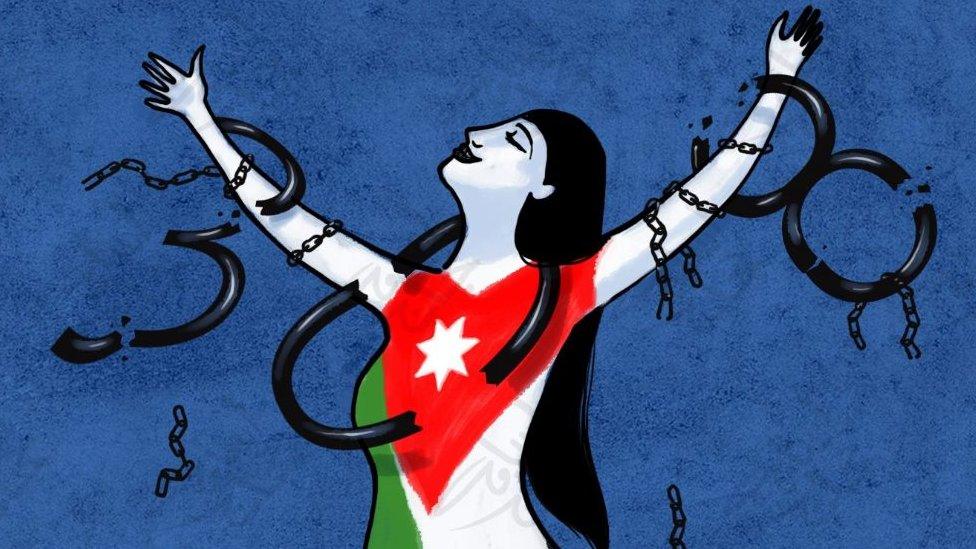
This cartoon by Osama Hajjaj was shared by social media users when the controversial law allowing rapists to escape prison sentences if they married their victim was abolished
Jordanian social media users praised the government for scrapping a controversial clause in August that allowed rapists to escape punishment if they married their victims.
Human rights activists had been campaigning for months to remove Article 308 from the country's penal code, saying there needed to be more protection for women in the country.
One Twitter user, external said that it was a "society-wide" problem that Jordanians did not see women who have been raped and forced into marriage as victims.
On Twitter alone the hashtag #308Removed generated more than 3,500 tweets in 24 hours following the vote to scrap the clause.
The subject was a huge talking point among Jordanian social media users despite the numbers being comparatively small.
"Today marks the day our parliament made us proud... For once! Crime cannot be treated with a bigger crime of humanity," commented, external another Twitter user.
Similar legislation had recently been abolished in both Tunisia and Lebanon.
#ItsABlackThing
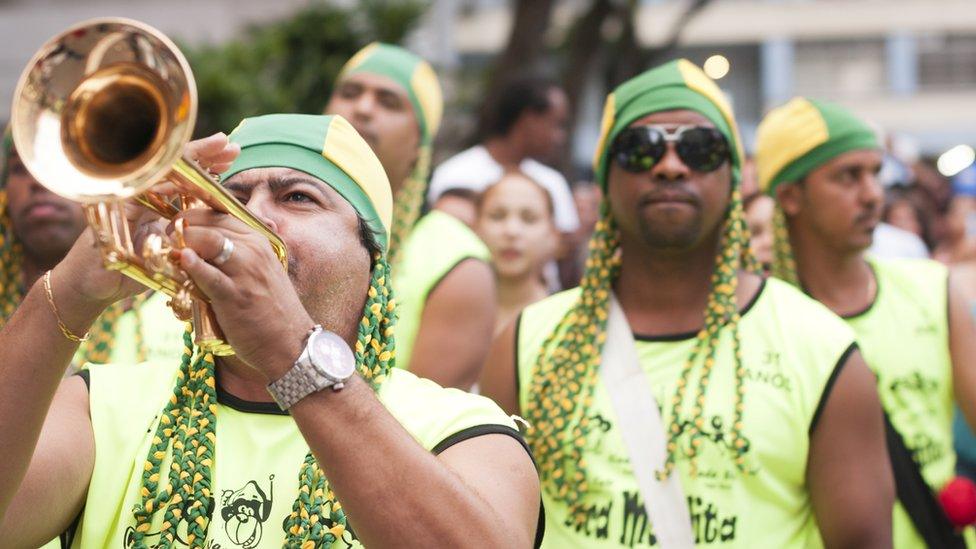
In November, Twitter users in Brazil reacted to footage of a well-known TV anchor saying "coisa de preto" Portuguese for "it's a black thing" in response to loud honking from a nearby car.
William Waack was preparing for a live broadcast to discuss the US presidency with a guest on TV Globo.
The video soon went viral and following the remark, 145,000 social media users posted the hashtag #ÉCoisaDePreto to laud the achievements of black Brazilians.
"#ÉCoisaDePreto Raíssa Santana, became the second black woman in the history of Brazil to win the Miss Brazil awards awards!" commented, external one Twitter user.
Many also shared photos of Rafaela Silva, a black judo athlete, who earned Brazil's first gold medal during the 2016 Rio Olympics.
Outside Nigeria, Brazil is home to the largest black population in the world.
The presenter has since been fired for his comments.
By Rozina Sini, BBC's UGC and Social News Team. Additional reporting by BBC Monitoring
- Published21 May 2017
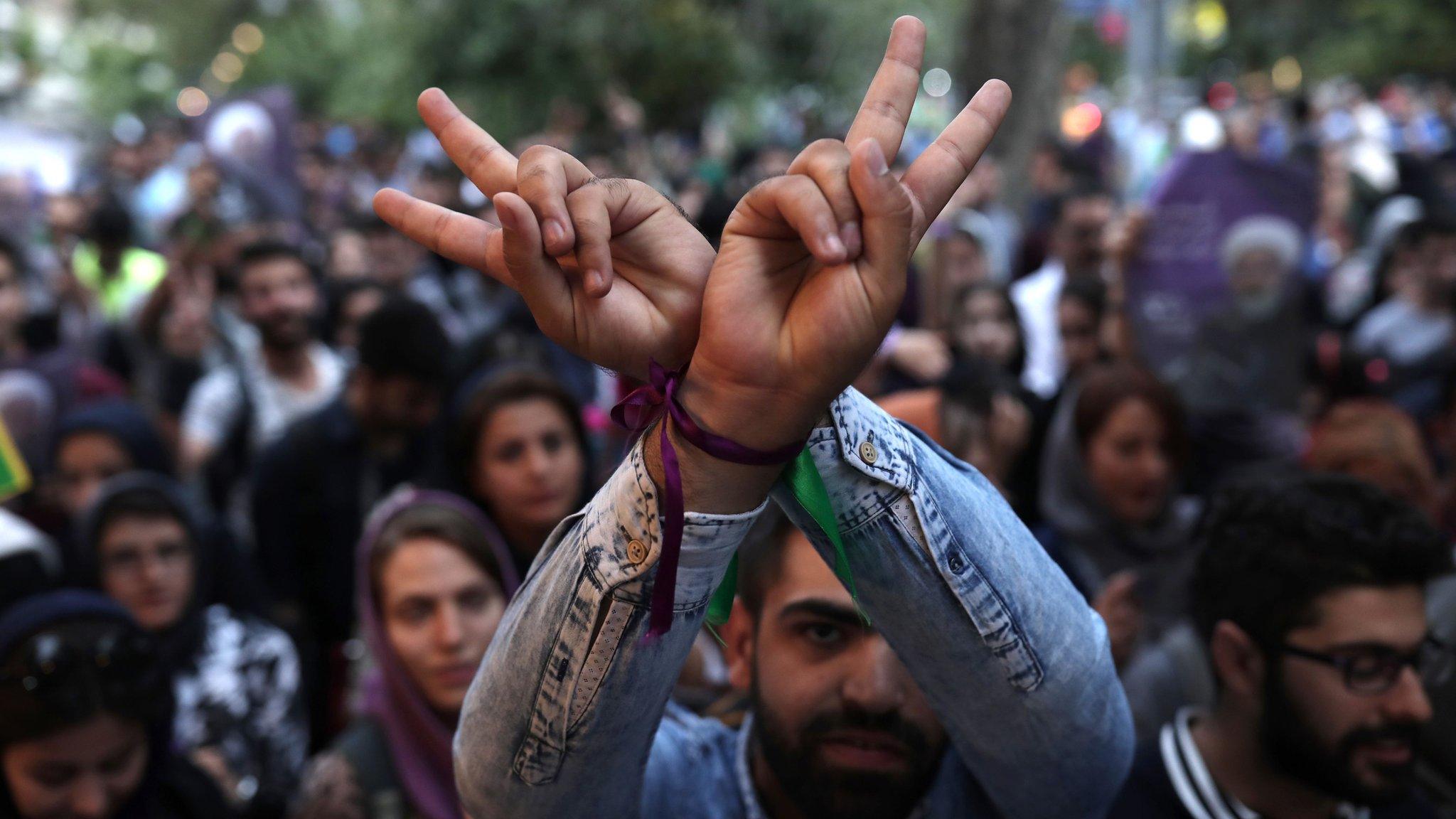
- Published25 September 2017
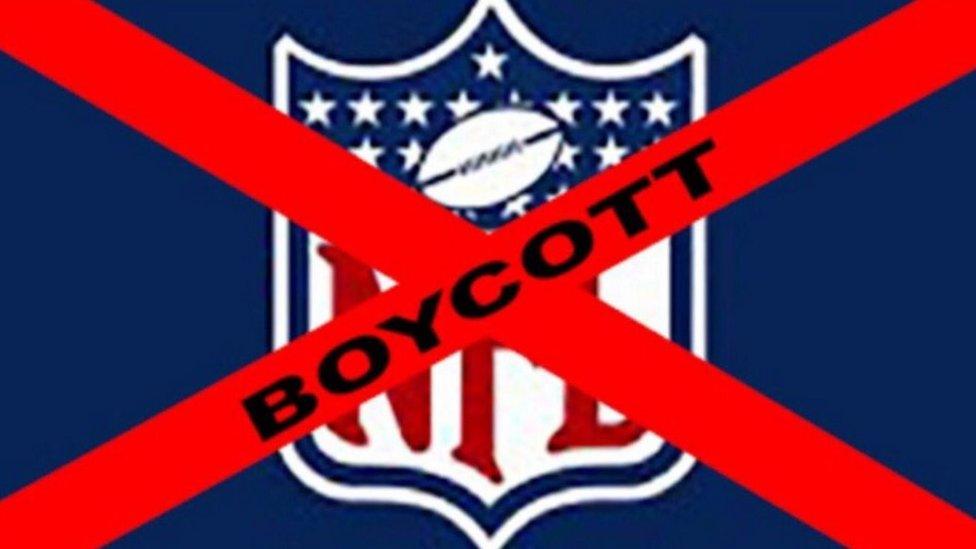
- Published6 December 2017
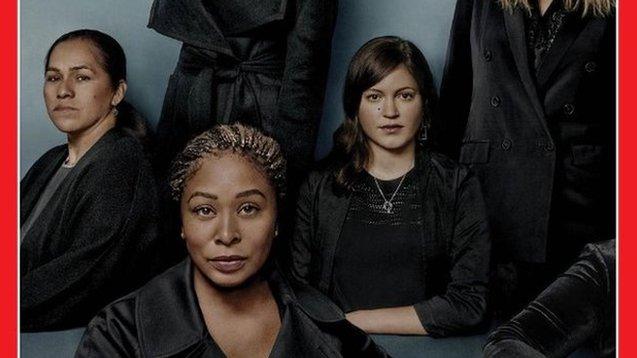
- Published16 October 2017
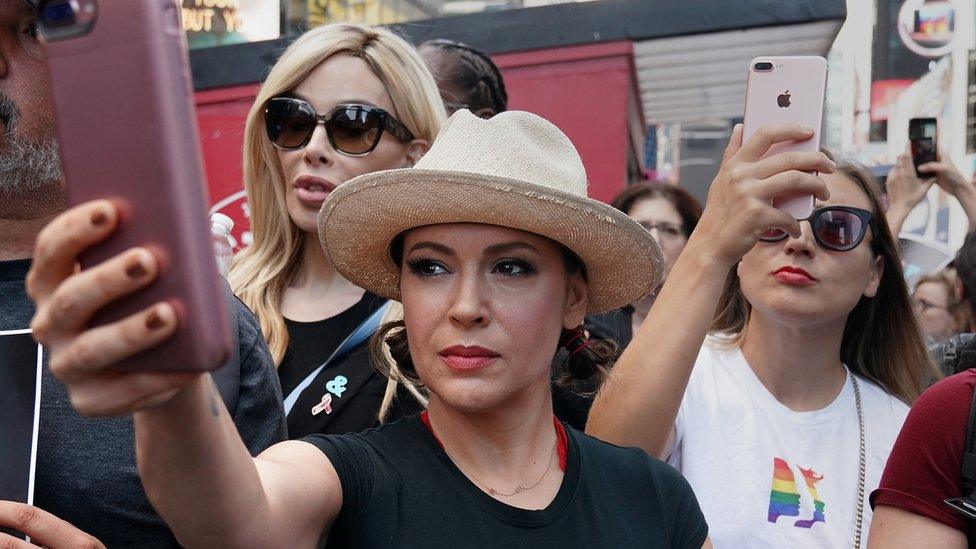
- Published23 August 2017
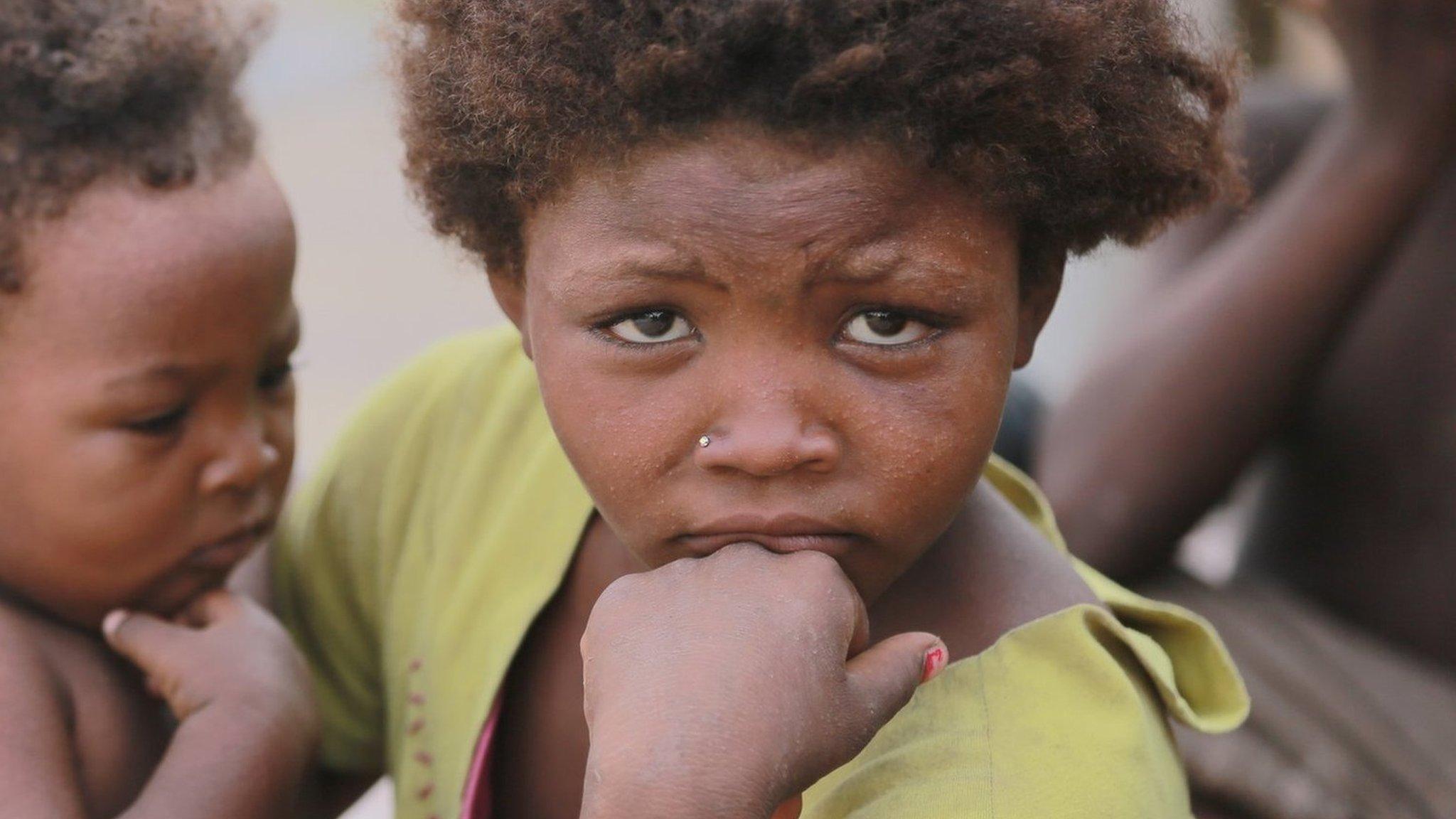
- Published1 August 2017
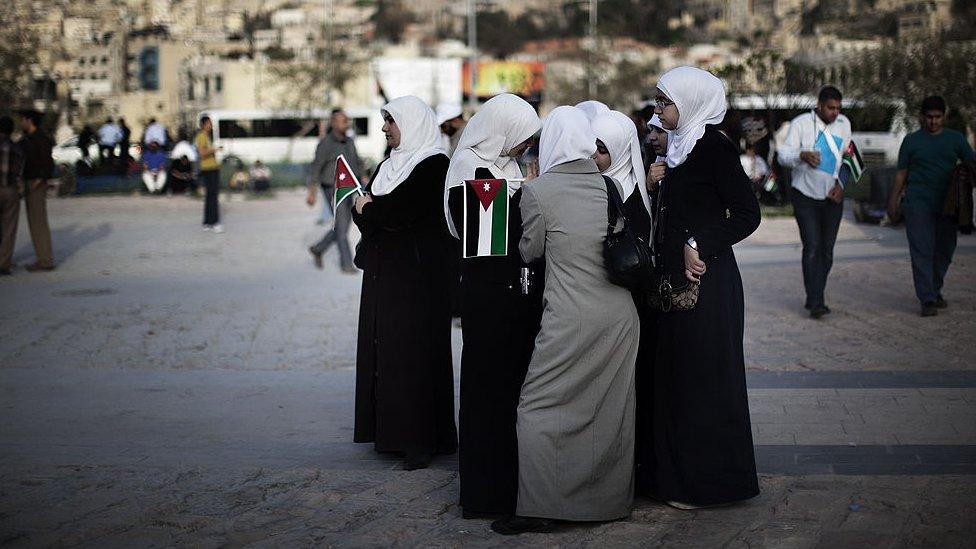
- Published14 April 2023
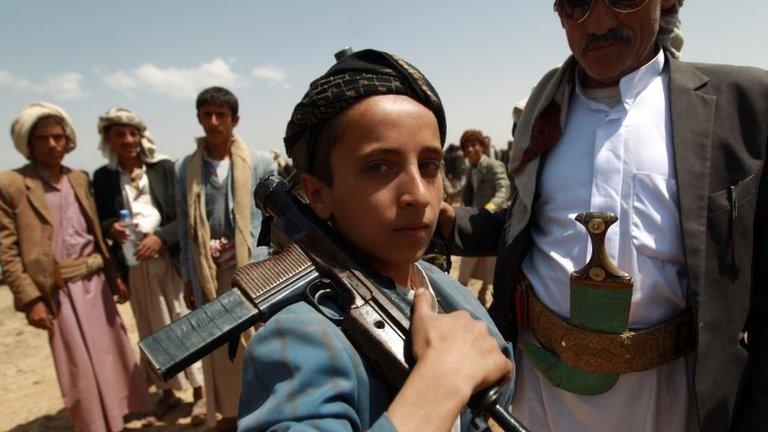
- Published25 October 2017
